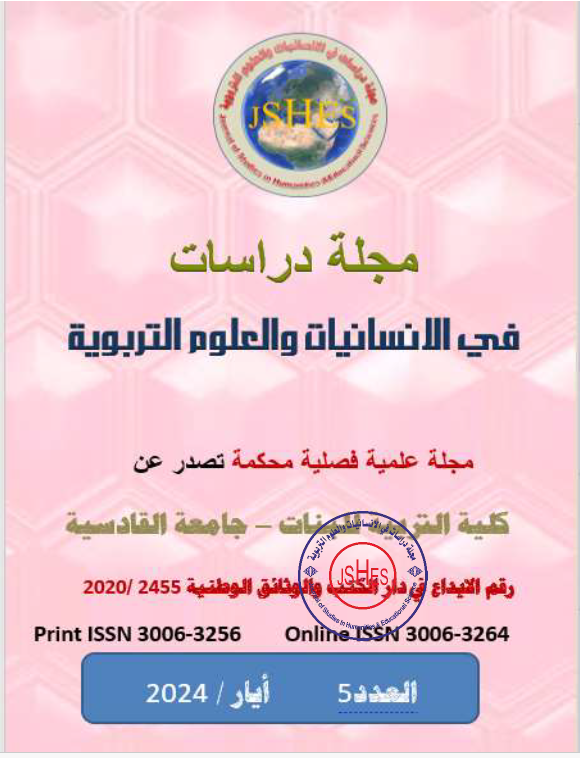Abstract
Algerian-Maghreb relations expanded after independence, and Algeria was linked to many countries through diplomatic relations, especially the regional and neighboring countries. This was also helped by the emergence of Algeria’s sincere intention to break out of the limited frameworks in which the country was placed after the occupation, on the one hand, and the desire of the regional countries to have their own distinguished relations with Algeria, especially the Maghreb. Which occupied an important strategic position and a prominent economic situation represented by the presence of oil and other minerals, in addition to the efforts of the Maghreb countries to maintain their connection with Algeria for many factors, including the unity of religion and language and good neighbourliness, as well as solving the border problems with Morocco and the problem of Western Sahara and others.Successive governments in Algeria, especially during the era of Chadli Bendjedid, sought to open up to the Maghreb countries. They succeeded in establishing friendly relations and cooperation with their regional surroundings and sought, with their neighboring Arab countries, to establish the Arab Maghreb Union and end the rift with Morocco. During the era of President Chadli Bendjedid, Algeria witnessed relative stability, especially during his first presidential term (1979-1984). As for subsequent times (1985-1992), the country witnessed political, economic, and social turmoil, the results of which were the occurrence of a popular uprising in 1988. It was necessary to work on carrying out political and economic reforms, which culminated in the issuance of the 1989 constitution, but this did not please the army leadership, especially after the victory of the Islamists in the elections (1990-1991), and then the army forced President Chadli Bendjedid to resign in 1992, which led to the collapse of the country. In a real crisis, represented by the outbreak of a kind of civil war between the Islamists and the army. Here it can be said that the term of President Chadli Bendjedid’s rule is considered one of the turbulent, tense and unstable times in the history of contemporary Algeria.
Keywords
Algeria
Morocco
Abstract
تشعبت العلاقات الجزائرية المغاربية بعد الاستقلال وارتبطت الجزائر بالكثير من الدول بعلاقات دبلوماسية وبالذات الاقليمية ودول الجوار وكما ساعد على ذلك ظهور النية الصادقة للجزائر الخروج من الاطر المحدودة التي وضعت فيها البلاد بعد الاحتلال من جهة ورغبة الدول الاقليمية في ان تكون لهم علاقاتهم المتميزة مع الجزائر وبالذات المغاربية التي احتلت موقعاً ستراتيجياً مهماً ووضعاً اقتصادياً بارزاً تمثل بوجود النفط والمعادن الاخرى فضلاً عن سعي الدول المغاربية لإدامة صلتها بالجزائر لعوامل عديدة منها ، وحدة الدين واللغة وحسن الجوار فضلاً حل مشاكل الحدود مع المغرب ومشكلة الصحراء الغربية وغيرها .سعت الحكومات المتعاقبة في الجزائر ولاسيما في عهد الشاذلي بن جديد الى الانفتاح على الدول المغاربية فقد نجحت في اقامة علاقات صداقة وتعاون مع محيطها الاقليمي وسعت مع الدول العربية المجاورة لها ،الى اقامة اتحاد المغرب العربي وانهاء القطيعة مع المغرب . لقد شهدت الجزائر في عهد الرئيس الشاذلي بن جديد استقراراً نسبياً ولاسيما في ولايته الرئاسية الاولى (1979-1984) ،أما الاوقات اللاحقة (1985-1992) فقد شهدت البلاد اضطرابات سياسية واقتصادية واجتماعية كان من نتائجها حدوث انتفاضة شعبية عام 1988 ،ومن ثم كان من الضروري العمل على اجراء الاصلاحات السياسية والاقتصادية والتي تكللت بإصدار دستور عام 1989 لكن ذلك ،لم يرق لقيادات الجيش خاصةً بعد فوز الاسلاميين في انتخابات(1990-1991) ،وعندها اجبر الجيش الرئيس الشاذلي بن جديد على الاستقالة عام 1992 ،مما أدى ذلك الى وقوع البلاد في أزمة حقيقية تمثلت بنشوب نوع من الحرب الاهلية بين الاسلاميين والجيش .وهنا يمكن القول، ان مدة حكم الرئيس الشاذلي بن جديد تعد من الاوقات المضطربة والمتوترة وغير المستقرة في تاريخ الجزائر المعاصرة.
Keywords
الجزائر ، المغرب
